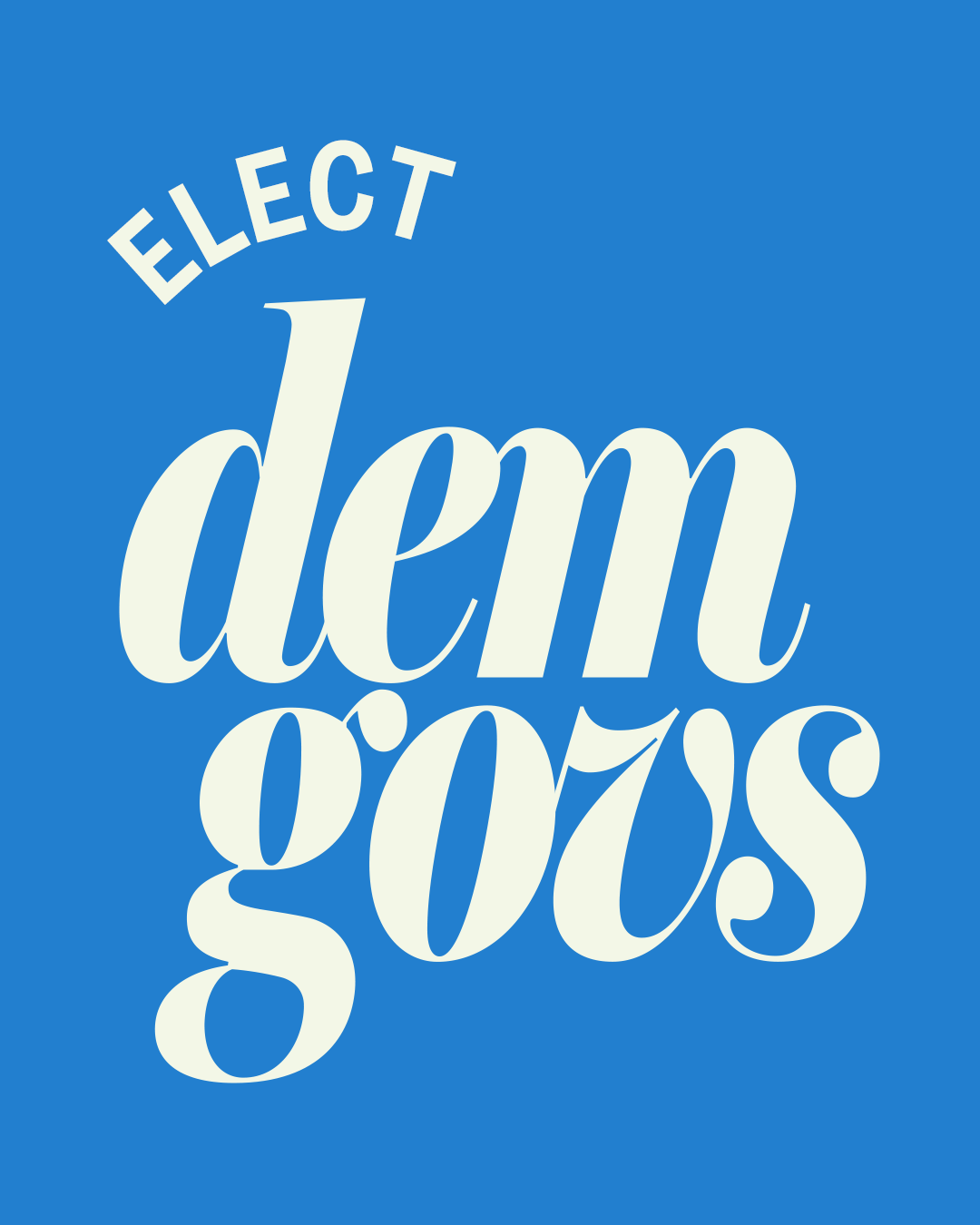
Chip in today to elect Dem govs >>
Democratic governors are leading in the fight against Donald Trump. With our two historic victories in Virginia and New Jersey, grassroots momentum is on our side! But this year, nearly 80% of the country is voting for a governor – and with Republicans already investing to beat Dem govs, early support has never been so critical. Will you donate to elect more Democratic governors who will defend our rights and freedoms and stand up to Trump?
Every State, Every Vote: Kentucky Touted As National Model For Conducting Elections During Pandemic
“Bipartisan cooperation between Adams, a Republican, and Kentucky’s Democratic governor, Andy Beshear, was at the center of Kentucky’s success.”
Kentucky’s largely successful primary election is being touted as a national model for upcoming primary and general elections. Politico reports, “Kentucky earned measured praise from voting rights advocates for how it largely sidestepped the missing ballots, long lines and other problems faced by many states amid coronavirus.”
The election process was the result of a bipartisan agreement between Democratic Gov. Andy Beshear and Republican Secretary of State Michael Adams which allowed all Kentuckians to vote from home and ensured access to safe in-person polling locations.
Gov. Beshear emphasized the need to continue building on the state’s progress as it looks towards November. The governor voiced his support for early voting and no-excuse absentee voting saying that both should be “enshrined in Kentucky law” moving forward.
Read more about Kentucky’s successful primary election below and learn how Democratic governors are fighting to expand access to the ballot box at EveryStateEveryVote.com.
Politico: Coronavirus threatened to make a mess of Kentucky’s primary. It could be a model instead.
Coronavirus has upended elections around the country since the pandemic landed in America, and last month, it was feared Kentucky would be the next disaster. National figures from Hillary Clinton to LeBron James warned of impending calamity in the state, focusing on a dramatic decrease in polling places, especially in Louisville.
But after the votes came in, Kentucky earned measured praise from voting rights advocates for how it largely sidestepped the missing ballots, long lines and other problems faced by many states amid coronavirus. The Democratic governor and Republican secretary of state reached bipartisan agreement on a massive expansion of absentee voting, leading to the highest primary turnout in Kentucky since the hard-fought 2008 presidential primary.
Now, voting rights experts say other states should be reaching out to Kentucky for advice, as a potential blueprint for scaling up pandemic-safe voting for the November elections.
“I think Kentucky could be a model for states that have not done a lot of absentee voting prior, or they’ve had excuse absentee, in terms of scalability,” said Amber McReynolds, chief executive officer of the National Vote At Home Institute and a former elections director in Denver, Colo., when the state instituted one of the broadest vote-by-mail programs in the country.
Just over 1 million Kentuckians voted in the primary despite the pandemic, the highest primary turnout in the state in 12 years. Roughly 75 percent of the votes were cast via absentee ballot, said Secretary of State Michael Adams. Kentucky’s size means the changes they made won’t be as easy to scale in some states, especially in a general election scenario, but the primary also went much better than other states’ so far this year.
[…]
“We think that the options that were given to people were great,” said Corey Shapiro, legal director of the Kentucky branch of the ACLU. “And with more time, more planning, and more thought put into it, the few instances that made it a qualified success, can make it a complete success if this was replicated in November, which we would like to see.”
Kentucky also avoided a negative side effect that hit other states making a rapid switch to mail-in voting: large numbers of voters requesting ballots but not receiving them. Margie Charasika, president of the Louisville chapter of the League of Women Voters, said they received few complaints of that happening: “People did get to vote, and for the most part, we’re satisfied.”
Bipartisan cooperation between Adams, a Republican, and Kentucky’s Democratic governor, Andy Beshear, was at the center of Kentucky’s success. Under state law, the secretary of state and governor must cooperate on emergency changes to elections.
[…]
Beshear and Adams jointly took several steps to help the state prepare for a coronavirus primary, including delaying the election from mid-May and, critically, allowing for an unprecedented expansion of absentee voting in the state. Kentucky typically requires an excuse for voters to vote absentee.
Under their joint emergency powers, Beshear and Adams waived that requirement, and the vast majority of voters took advantage of it. Some counties also had “in-person absentee voting” — effectively early voting — which also usually doesn’t take place in Kentucky. McReynolds, of the National Vote At Home Institute, said election administrators in the state proactively reached out to her organization for guidance on best practices.
Beshear and Adams relentlessly pushed the importance of voting ahead of Election Day, to prevent large crowds from gathering in person, and voters embraced the option.
“We’ve established a pretty good relationship. It doesn’t mean that we always agree,” Beshear said of Adams in an interview. “ But I could tell from him that he wanted to run the election safely. And I think he could tell from me that I wanted to do the same. And so a lot of planning went into it early.”
But the changes in Kentucky that led to a largely smooth election were made on a temporary basis, under emergency powers granted because of the pandemic. They are not enshrined in state law.
“We need to continue doing what we did here,” Beshear said. “So I’m in full support of no-excuse absentee voting this November, and I’d like to see it, moving forward, to be enshrined in Kentucky law. I’m for early voting, and for it to be our practice moving forward and for it to be enshrined in Kentucky law.”
[…]
McReynolds also noted there are benefits to election “supercenters,” when paired with extensive absentee voting, noting that voters can’t accidentally show up at the wrong polling place.
But a successful primary does not mean that election officials can just rest ahead of November. “I’ve been in office less than six months — talk about hazing the new guy,” Adams joked.

